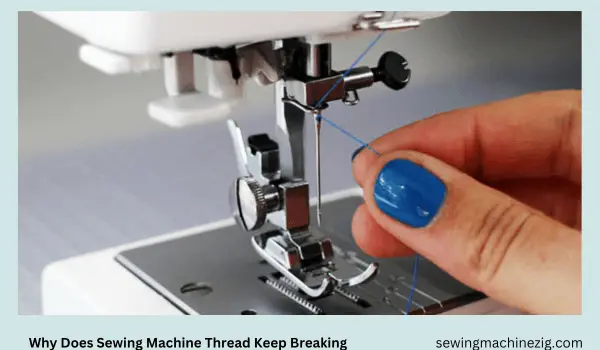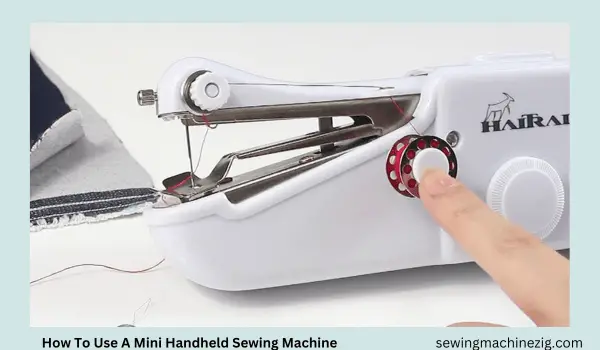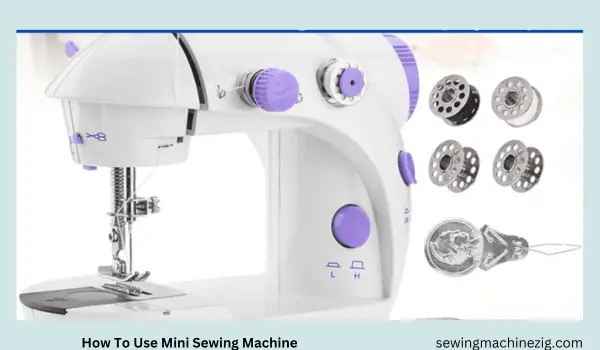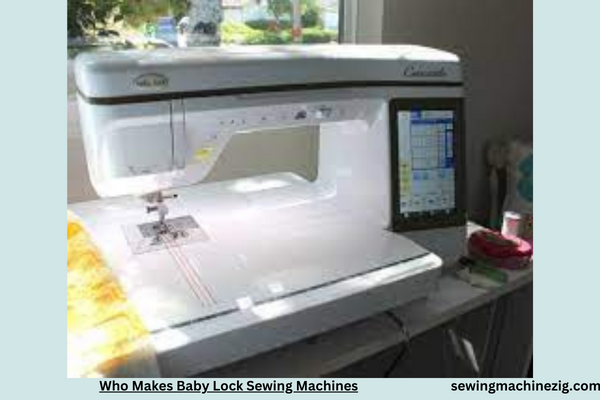
Embarking on the world of sewing often leads to a quest for the finest machines, and Baby Lock is a brand that consistently stands out. If you’re curious about the minds and hands behind these exceptional sewing machines, you’re not alone. “Who makes Baby Lock sewing machines?” is a question that unveils a legacy of craftsmanship and innovation.
Join us on a journey to discover the artisans and manufacturers shaping the reputation of Baby Lock, as we delve into the origins of these reliable and feature-rich sewing companions. Uncover the story behind the brand that has become synonymous with precision and creativity in the sewing world.
Who Makes Baby Lock Sewing Machines Detailed Answer
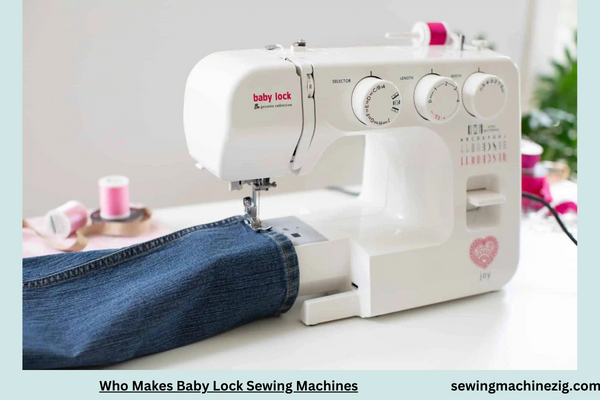
Baby Lock sewing machines have carved a niche in the sewing industry, known for their innovative features and cutting-edge technology. If you’ve ever wondered about the creators behind these exceptional machines, this step-by-step guide will unravel the story of who makes Baby Lock sewing machines.
Step 1: The Birth of Baby Lock
The journey begins with the establishment of Baby Lock, a brand that originated in Japan in the 1960s. The founders set out to create sewing machines that combined precision with user-friendly features.
Step 2: Juki Corporation Collaboration
Baby Lock is manufactured in collaboration with the Juki Corporation, a renowned Japanese company with a long history in the sewing machine industry. This collaboration ensures the infusion of technological expertise into the production of Baby Lock machines.
Step 3: Precision Engineering by Juki
Juki Corporation, with its roots tracing back to 1938, is a global leader in industrial and household sewing machines. The collaboration with Baby Lock allows Juki’s precision engineering to play a pivotal role in the creation of each sewing machine.
Step 4: Exclusive Innovations
Baby Lock sewing machines are renowned for their exclusive features, such as the revolutionary Jet-Air Threading™ technology and the Automatic Fabric Sensor System. These innovations are a result of the combined efforts of Baby Lock’s design team and Juki’s technological prowess.
Step 5: Visit Authorized Dealers
To ensure the authenticity of your Baby Lock sewing machine, it is recommended to purchase from authorized dealers. Authorized dealers offer genuine products, customer support, and warranty services, providing you with a seamless sewing experience.
Step 6: Identifying Genuine Baby Lock Machines
Authentic Baby Lock sewing machines bear the unmistakable Baby Lock logo. Check for this logo on the machine to confirm its legitimacy and quality.
Step 7: Understanding Baby Lock Models
Baby Lock offers a diverse range of sewing machines, sergers, and embroidery machines. Understanding the various models and their capabilities ensures you select a machine that aligns with your specific sewing needs.
Step 8: Explore Technological Advancements
Baby Lock continues to push the boundaries of technology, introducing features like the Digital Dual-Feed System and the Crescendo model with advanced stitching capabilities. Staying informed about these advancements allows you to harness the full potential of your Baby Lock machine.
Step 9: Join the Baby Lock Community
Baby Lock has a vibrant and supportive community of sewists. Joining forums, social media groups, or local events organized by Baby Lock enthusiasts provides valuable insights and tips for maximizing your machine’s capabilities.
Step 10: Check for Software Updates
As technology evolves, Baby Lock may release software updates for certain machine models. Regularly check for updates on the official Baby Lock website to ensure your machine is operating with the latest features and improvements.
Step 11: Register Your Machine
Upon acquiring a Baby Lock sewing machine, take the time to register it with the company. Registration ensures that you receive important notifications, updates, and warranty information directly from Baby Lock.
Step 12: Enjoy the Sewing Experience
Whether you’re a seasoned sewist or a beginner, the collaboration between Baby Lock and Juki brings forth machines designed to enhance your sewing experience. Enjoy the precision, reliability, and innovative features that Baby Lock sewing machines offer.
In Baby Lock sewing machines are a product of the collaborative efforts between Baby Lock and the esteemed Juki Corporation. This partnership combines Baby Lock’s commitment to user-friendly design with Juki’s precision engineering, resulting in sewing machines that stand at the forefront of innovation.
By understanding “Who makes Baby Lock sewing machines“the origins and collaborative spirit behind Baby Lock, you can confidently embark on your sewing journey with a machine that represents the pinnacle of craftsmanship and technology.
Where Are Baby Lock Sewing Machines Made?
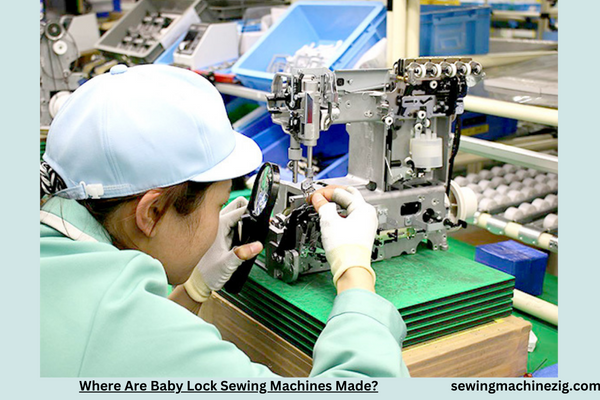
Where Are Baby Lock Sewing Machines Made? A Comprehensive Exploration
The origin of a sewing machine can add a layer of understanding and appreciation for the craftsmanship behind the device. For those curious about where Baby Lock sewing machines are made, this comprehensive guide will provide a step-by-step exploration, answering the question and shedding light on the manufacturing process.
Step 1: Researching the Brand
Before delving into the manufacturing specifics, it’s essential to gather information about the Baby Lock brand. Baby Lock is renowned for producing high-quality sewing machines, sergers, and embroidery machines. Understanding the brand’s reputation sets the stage for learning about its manufacturing practices.
Step 2: Exploring Baby Lock’s History
To comprehend where Baby Lock sewing machines are made, it’s helpful to explore the brand’s history. Baby Lock originated in Japan and has a rich heritage dating back to 1968. The brand’s commitment to innovation and precision has been a driving force in the sewing machine industry.
Step 3: Understanding Global Production
While Baby Lock originated in Japan, the brand has expanded its production to meet global demand. Over the years, Baby Lock has established manufacturing facilities in various locations to cater to a diverse customer base worldwide.
Step 4: Factory Locations and Quality Control
Baby Lock has manufacturing facilities in both Japan and the United States. The Japanese facilities uphold the brand’s commitment to precision engineering, while the U.S. factories contribute to local production and cater to the American market. Each factory follows rigorous quality control measures to ensure that every Baby Lock sewing machine meets the brand’s high standards.
Step 5: The Role of Technology in Manufacturing
The manufacturing of Baby Lock sewing machines involves cutting-edge technology. Automated processes, computerized precision, and innovative engineering contribute to the production of machines that are not only functional but also user-friendly. The integration of technology plays a pivotal role in maintaining the brand’s reputation for excellence.
Step 6: Sourcing High-Quality Materials
An integral part of Baby Lock’s manufacturing process is the sourcing of high-quality materials. From sturdy metal frames to advanced electronic components, the brand emphasizes using top-notch materials to construct durable and reliable sewing machines.
Step 7: Craftsmanship and Attention to Detail
Craftsmanship is a hallmark of Baby Lock sewing machines. Skilled technicians and engineers meticulously assemble each machine, paying attention to the finest details. This commitment to craftsmanship ensures that every Baby Lock sewing machine that leaves the factory is a testament to precision and quality.
Step 8: Continuous Improvement and Innovation
Manufacturing Baby Lock sewing machines is not a static process. The brand is committed to continuous improvement and innovation. Research and development efforts focus on integrating the latest advancements in technology and sewing techniques, ensuring that each new model surpasses its predecessors in terms of functionality and user experience.
Step 9: Final Inspection and Testing
Before reaching the hands of customers, every Baby Lock sewing machine undergoes a rigorous final inspection and testing process. This ensures that the machine not only meets quality standards but also performs flawlessly. Stringent testing procedures guarantee that each machine is ready to tackle a wide range of sewing projects.
Step 10: Distribution and Customer Support
Once the manufacturing process is complete, Baby Lock sewing machines are distributed to authorized dealers worldwide. The brand’s commitment to customer satisfaction extends beyond the manufacturing stage, with comprehensive customer support services and educational resources to empower users in their sewing journey.
By following these steps, we’ve unraveled the details behind where Baby Lock sewing machines are made. From the brand’s origins in Japan to its global presence and commitment to quality, Baby Lock continues to be a leading name in the sewing machine industry.
Whether you’re a seasoned sewist or a beginner, understanding the craftsmanship behind your sewing machine adds a layer of appreciation for the artistry that goes into creating these innovative tools.
Are Brother And Babylock The Same?
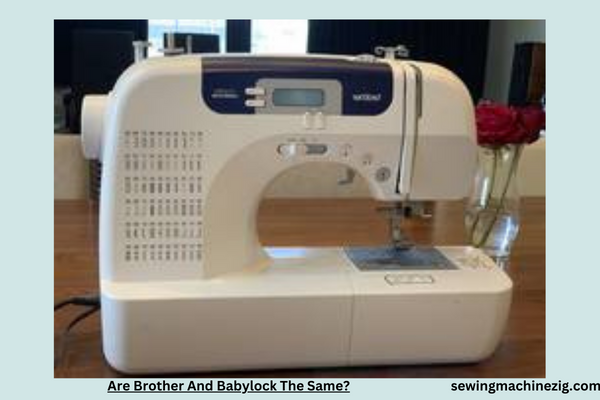
Are Brother and Babylock the Same? A Comprehensive Comparison
The sewing machine market is diverse, offering a range of brands with unique features and capabilities. Among the popular names in the industry, Brother and Babylock often garner attention. In this detailed exploration, we will conduct a step-by-step comparison to address the question: Are Brother and Babylock the same?
Step 1: Understanding the Brand Identities
To determine whether Brother and Babylock are the same, it’s essential to first understand their respective brand identities. Brother Industries, a Japanese multinational company, is renowned for producing a wide array of products, including sewing machines. On the other hand, Babylock, with its origins in Japan as well, has gained recognition for its focus on innovation and high-end sewing and embroidery machines.
Step 2: Recognizing the Corporate Connection
Despite both originating from Japan, Brother and Babylock are distinct brands with separate corporate identities. While they share a common origin, they are not part of the same corporate entity. This distinction is crucial in understanding their unique positions in the sewing machine market.
Step 3: Exploring Product Lines and Specializations
To further assess the differences, delve into the product lines and specializations of Brother and Babylock. Brother is known for offering a broad spectrum of sewing machines catering to various skill levels and budgets. Babylock, on the other hand, is often associated with high-end machines that excel in advanced stitching techniques and embroidery.
Step 4: Comparing Machine Features and Capabilities
Brother and Babylock sewing machines may share some fundamental technologies, given their Japanese heritage, but a detailed comparison reveals differences in features and capabilities. Brother machines often focus on versatility and user-friendly interfaces, while Babylock machines are recognized for their precision and specialized functions.
Step 5: Price Range and Accessibility
Consider the price range and accessibility of Brother and Babylock machines. Brother sewing machines are generally more accessible in terms of price, making them suitable for a wide range of users, including beginners. Babylock, with its emphasis on advanced features, tends to be positioned at a higher price point, targeting enthusiasts and professionals.
Step 6: Researching Technological Innovations
Both Brother and Babylock have a history of incorporating technological innovations into their machines. However, the specific technologies may vary. Brother machines often feature advanced computerized systems, while Babylock is known for innovations like the Jet-Air Threading™ system, providing convenient and efficient threading for users.
Step 7: Considering the Sewing Community’s Perspective
To gain insights into the perceptions of sewing enthusiasts, consider the experiences and reviews within the sewing community. Many users share their thoughts on online forums, social media, and review platforms, offering valuable perspectives on the performance and satisfaction levels with Brother and Babylock machines.
Step 8: Assessing Warranty and Customer Support
The level of support provided by the brands is a crucial factor in the overall user experience. Assess the warranty offerings and customer support services of Brother and Babylock. A comprehensive warranty and responsive customer support contribute to the overall satisfaction of users.
Step 9: Evaluating Long-Term Reliability
Reliability is a key consideration when investing in a sewing machine. Evaluate the long-term reliability of Brother and Babylock machines based on user experiences, reviews, and any known issues reported over extended usage.
Step 10: Making an Informed Decision
After completing this comprehensive comparison, it becomes clear that while Brother and Babylock share a Japanese heritage and a commitment to quality, they are distinct brands with unique offerings. Whether they are the same depends on individual preferences, needs, and the specific features desired in a sewing machine.
In Summary, Brother and Babylock are not the same, but each has its strengths and caters to different segments of the sewing machine market. By carefully considering the factors mentioned in this step-by-step guide, you can make an informed decision based on your sewing requirements and preferences.
Conclusion
In conclusion, demystifying the origins of Baby Lock sewing machines reveals a unique partnership. Manufactured by Tacony Corporation, Baby Lock machines benefit from the company’s dedication to innovation and quality craftsmanship. This distinctive collaboration ensures that each Baby Lock sewing machine embodies precision and reliability.
Knowing that Tacony Corporation is behind the production assures users that their creative endeavors are supported by a brand committed to excellence. As a result, when it comes to the question of who makes Baby Lock sewing machines, the answer underscores a commitment to crafting tools that inspire and endure. “Who makes Baby Lock sewing machines“
FAQS
Q1: Who is the manufacturer of Baby Lock sewing machines?
A1: Baby Lock sewing machines are proudly manufactured by the Tacony Corporation, a leading name synonymous with innovation and quality in the sewing industry. “Who makes Baby Lock sewing machines“
Q2: Where does Tacony Corporation produce Baby Lock sewing machines?
A2: Tacony Corporation oversees the production of Baby Lock sewing machines, ensuring they are crafted with precision and reliability. “Who makes Baby Lock sewing machines“
Q3: Are Baby Lock sewing machines produced internationally?
A3: Yes, Tacony Corporation’s manufacturing presence extends globally, reflecting a commitment to delivering high-quality sewing machines to a diverse market. “Who makes Baby Lock sewing machines“
Q4: What makes Tacony Corporation stand out in sewing machine production?
A4: Tacony Corporation stands out with a dedication to innovation and quality craftsmanship, evident in each Baby Lock sewing machine they produce. “Who makes Baby Lock sewing machines“
Q5: Can users trust the reliability of Baby Lock sewing machines?
A5: Absolutely. The reputation of Tacony Corporation assures users that each Baby Lock sewing machine is crafted with precision, offering reliability for various creative projects. “Who makes Baby Lock sewing machines“
Q6: Are there specific features that define Baby Lock sewing machines?
A6: Yes, Baby Lock sewing machines are renowned for their innovative features, setting them apart in terms of functionality, ease of use, and creative capabilities. “Who makes Baby Lock sewing machines“

